PRESERVING A MILITARY LEGACY FOR FUTURE GENERATIONS
The following Reflections represents Maj Toppie Robinette’s legacy of his military service from 1954 to 1974. If you are a Veteran, consider preserving a record of your own military service, including your memories and photographs, on Togetherweserved.com (TWS), the leading archive of living military history. The following Service Reflections is an easy-to-complete self-interview, located on your TWS Military Service Page, which enables you to remember key people and events from your military service and the impact they made on your life. Start recording your own Military Memories HERE.
Please describe who or what influenced your decision to join the Air Force.
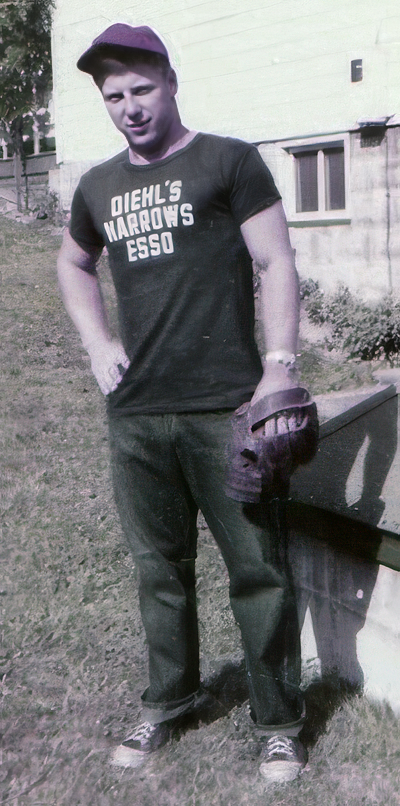
Since my parents went through the Great Depression and only finished the 8th grade, there was never an incentive for me to go to college. I grew up a country boy with interests in Hot Rodding and playing fastpitch softball. I continued both during my service career. After High School, I assumed that I would get a job at the Kelly Springfield Tire Co, where my father was a bead room supervisor. The company would not hire me because I had not fulfilled my military draft obligation.
I found a job as a mechanic at a truck/farm machinery company. One day I got a letter in the mail from the local US Air Force recruiter, inviting me to take a qualification test for the US Air Force Aviation Cadet Program. Graduating as a 2nd LT with flying wings and making $5,000 a year. So I showed up for the test with about 25 other high school classmates. We took the test and then went to lunch and returned for our grades. I was the only one who passed the test, and the recruiter ushered the others across the hall to the US Army recruiter. A few months later, I went to Sampson AFB, New York, for three days of mental, physical, and psychomotor testing. I passed my cognitive and psychomotor testing for both pilot and navigator.
However, I failed one of the pilot position eye tests but still qualified for the navigator position. That entitled me to a 2-year enlistment into the Air Force, not the standard 4-year enlistment. At that time, my goal was to spend two years in the Air Force and return home. I awaited my Cadet Class assignment. In July 1954, my recruiter recommended I enlist in the US Air Force because I would be in the US Army if I received my draft notice in the mail. So on July 13, 1954, I enlisted in the US Air Force and was sent to Lackland AFB, San Antonio, Texas, for Basic Training.
Whether you were in the service for several years or as a career, please describe the direction or path you took. What was your reason for leaving?
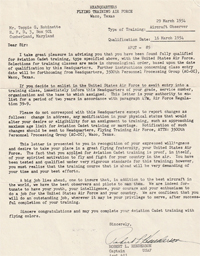
After completing Basic Training on 24 Sep 1954, I was sent to a holding unit at James Connally AFB, Waco, Texas, to await my Cadet Class assignment. It came quickly, and I returned to Lackland AFB, San Antonio, Texas, to attend Pre-Flight Officer Training School (USAF), class 55-21-C on 29 Oct 1954.
So far, I had no problems adapting to military life. My goal continued to be, spent my two years in the Air Force and go home. If at any time you failed to complete an Aviation Cadet class satisfactorily, they removed you from the program and your enlistment requirement. I graduated from the Pre-Flight Officer Training School on 7 Feb 1955 and was assigned to Class 56-01, 3611th Student Squadron, 3610th Aircraft Observer Training Wing, Harlingen AFB, Harlingen, Texas.
Once I started my Basic Observer Flying Training, I began to love the flying and the challenge of navigating the aircraft. It seemed that I just had a natural aptitude for navigating and a good sense of direction. I maintained above-average grades in both flying lessons and my academic classes. My military grades were average. I continued to enjoy the flying, and navigational challenges as the courses became more difficult. On 27 Jan 1956, I graduated from the Primary Basic Observer Training School as a 2nd LT with Aircraft Observer Wings. I graduated eighth in my class of 33. I was on my way.
If you participated in any military operations, including combat, humanitarian and peacekeeping operations, please describe those which made a lasting impact on you and, if life-changing, in what way?
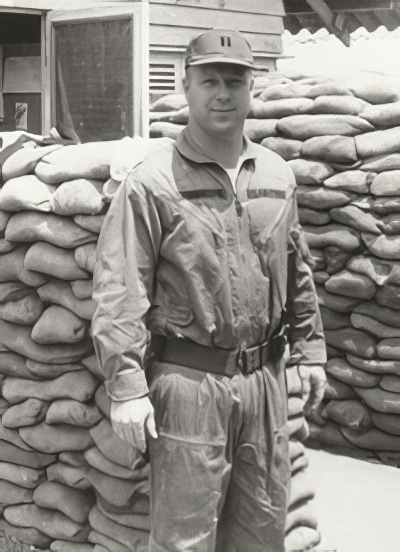
During my tour in Vietnam, I was stationed at Pleiku AFB in the north-central highlands. The only real contact I had with the Vietnamese was the maids who did our laundry. The base had a Civic Actions Program for the Montagnard Tribe who lived there. We built the Tribe a concrete water reservoir, dug a well, and then installed a large windmill to pump the water into the reservoir.
Most of the work was done by our enlisted men, with a few officers involved. It was a very nice facility for these very, very poor people. They really appreciated the freshwater project.
Did you encounter a situation during your military service when you believed there was a possibility you might not survive? Please describe what happened and what was the outcome.
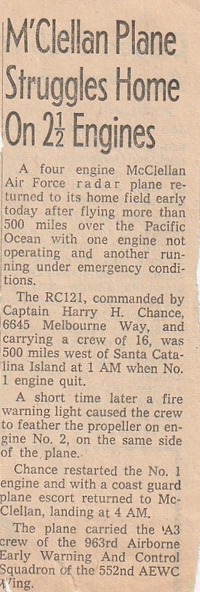
While stationed at McClellan AFB in Sacramento, CA, I flew on the RC-121 Airborne Radar Aircraft. Manning Air Defense Identification Zones off the West Coast of CA. Our missions typically were 12-16 hours long, with the zones about 3-4 hours flying distance from the Coast.
During a mission, one of the four engines on the aircraft had a minor mechanical problem, and we shut it down and continued on three engines. Shortly after that, the engine next to it caught fire from the increased load it was carrying and was shut down. So we had two engines out on the same side of the aircraft. We declared an emergency and turned for home 4 hours out to sea. The pilot managed to restart the first failed engine and run it at part throttle, which relieved my tension considerably. We managed to return home and land safely. Fortunately, that was my only close call, even in combat missions in Vietnam.
Of all your duty stations or assignments, which one do you have fondest memories of and why? Which was your least favorite?
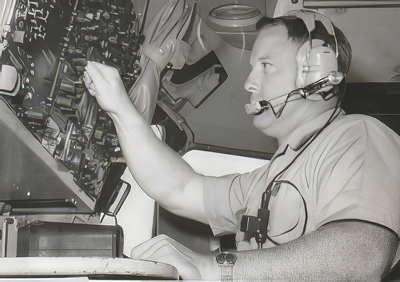
I have many cherished memories of my first permanent assignment as a Radar Observer flying in the back seat of the F-94C jet fighter. However, my fondest memories are of the last four years of my military career. I was a Flight Examiner Navigator flying in C-141’s at Travis AFB, CA, when the C-5 aircraft was announced. I was excited and volunteered to fly in it. Much to my surprise, I was selected to the group of initial cadre crew members for C-5 training. I was sent TDY to Altus AFB, OK, for training. I graduated from the C-5 Navigator Course at the top of my class and returned to Travis AFB. I was immediately sent TDY to Edwards AFB, CA, to test fly the C-5A.
I enjoyed the test flights and returned to Travis AFB about a month later. We had no aircraft at the time, so by my own initiative, I became qualified to operate the C-5 flight simulator and started training the navigators now assigned to our squadron. I was the only Navigator at Travis AFB qualified to do this. I was later upgraded to Flight Examiner Navigator on the C-5 aircraft and became the first C-5 crew member at Travis AFB awarded the 1000 hour flying time award. I continued this duty until I retired on 31 Jul 1974.
While having fun flying in the F-94C jet fighter, the US Air Force needed ground radar controllers to control the jet fighters that intercepted unknown aircraft. Unfortunately for me, I got selected for Intercept Controller School at Tyndall AFB, FL. After six weeks of training, I completed the course graduating 4th in a class of 70. I then went to the 773rd Aircraft Warning & Control Squadron, Montauk Point, Long Island, New York. Wow, there is nothing out there but a State Park, and after flying in jet fighters, sitting for 8 hours a day watching a Cathode Ray Tube with the radar sweep going round and round is quite dull.
So now I’m directing the aircraft that I used to fly in. Doing this boring work and nothing to do when you were off made this the worse assignment in my Air Force career.
What professional achievements are you most proud of from your military career?
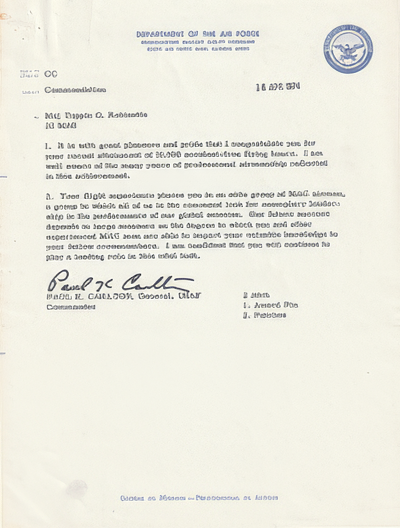
I am most proud of my career flying achievements. I accumulated over 11,600 hours of flying time, from Radar Observer in the back seat of jet fighters to Flight Examiner Navigator in the US Air Force’s largest transport aircraft, the C-5.
I am also proud of my accomplishments of rising from a Line Navigator to an Instructor Navigator and then to a Flight Examiner Navigator, the highest flight status position, in both the C-141 and C-5 transports. I have over 2,000 hours of flying time in each aircraft, plus over 5,600 hours in the EC/RC-121 Airborne Early Warning and Control radar surveillance aircraft.
From your entire military service, describe any memories you still reflect on to this day.
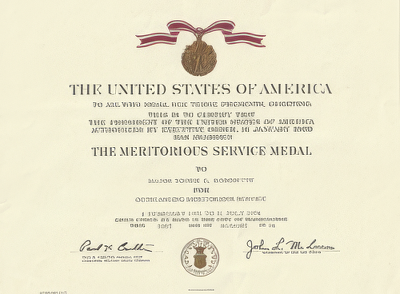
I have so many good memories from my Air Force career that they are too numerous to mention.
From qualifying for the Aviation Cadet Program as a civilian to the day, I retired and received the Meritorious Service Medal.
Of all the medals, awards, formal presentations and qualification badges you received, or other memorabilia, which one is the most meaningful to you and why?

The most meaningful award I received was the Distinguished Flying Cross. The citation with this award reads as follows.
Captain Toppie G Robinette distinguished himself by extraordinary achievement while participating in aerial flight as an EC-47 Navigator supporting Operation Hood River near Quang Tin, Republic of Vietnam, on 25 August 1967. On that date, Captain Robinette was flying a combat support mission against unfriendly ground forces. With great determination and superior airmanship, in constant danger from hostile ground and artillery fire, he caused his aircraft to be maneuvered in such a manner as to remain on station and provide timely intelligence to friendly ground forces. This contributed immeasurably to the success of Operation Hood River. The professional competence, aerial skill, and devotion to duty displayed by Captain Robinette reflect great credit upon himself and the United States Air Force.
The EC-47 mission in Vietnam was to fix the position of enemy radio transmitters on the ground. Onboard Intelligence personnel used electronic equipment aboard the aircraft to listen, record, and identify radio transmitters. They really amazed me. I couldn’t tell the dots from the dashes in Morris Code, but they could identify every person’s nationality doing the transmission. When they found a target, they would tell me. I had a button that I could push, and the directional needle would point toward the target. I would direct the aircraft toward and then around the target, plotting Lines of Position on the map at the target as we flew around it. Where the lines crossed was the transmitter: the smaller the triangle where the lines crossed, the more accurate the position. I rated the accuracy and gave the coordinates to the intelligence crewmember. He would then call that position into the friendly forces on the ground. The neat thing I loved about our missions was that I was in complete control of where the aircraft flew when on the station.
What profession did you follow after your military service, and what are you doing now? If you are currently serving, what is your present occupational specialty?
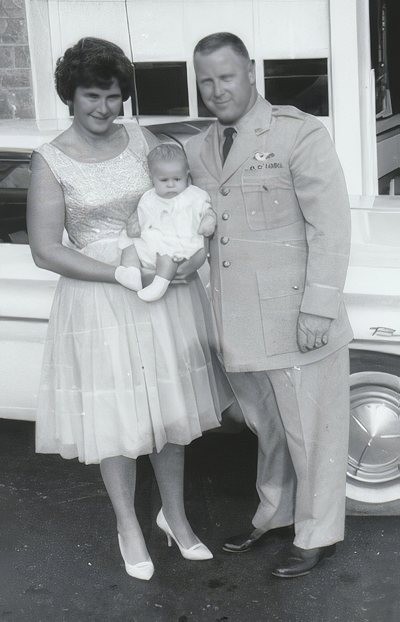
My job as a Navigator in the Air Force was replaced by a computer and a small inertial guidance unit. I learned that in the C-5, the last aircraft I flew on. That aircraft had one, and I was the operator. The system was very accurate for being the first of a kind. You could fly from Travis AFB in California to Honolulu and land, and the error would be less than 2 miles. That’s a lot closer than a good navigator would be, and the commercial system did not need an operator. Gone was my plan to be a Navigator for a commercial airline when I retired. So as the saying goes, “If you can’t fight them, join them.”
So I decided that computers must be the future and I interviewed at Ross Perot’s company, Electronic Data Systems. After five interviews, one with my wife, I got hired. I asked to be assigned to the Camp Hill, PA office since it was near Barbara’s and my hometown, and they agreed. The company only had about 4,000 employees.
I started as a computer operator trainee. They taught me everything I needed to know. I became a computer operator and taught myself how to write computer code, and I wrote a program to help make the operator’s job easier. EDS sent me to programming school and then assigned me to the operations support group, where I continued writing programs that aided them. Next, I went to IBM school to learn the IBM operating system and fix and maintain it. I was assigned to the Software Systems Group to upgrade and maintain the IBM operating systems we ran on our big computers. I started at the bottom, and when I retired 22 years later, I was a Senior Software Engineer, and the company had grown to 85,000 worldwide employees.
What military associations are you a member of, if any? What specific benefits do you derive from your memberships?
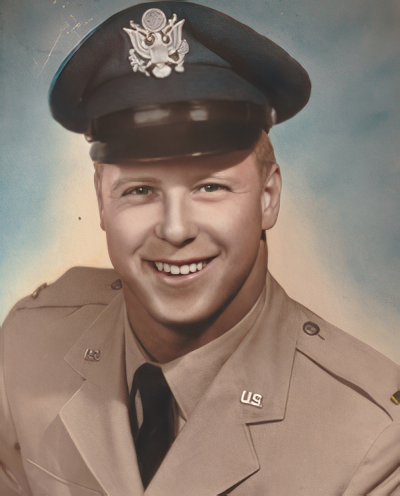
I am a member of MOAA, the Military Officers Association of America. MOAA is a nonprofit veterans’ association dedicated to maintaining a strong national defense and ensuring our nation keeps its commitments to currently serving, retired and former members of the uniformed services and their families and survivors. They do this by lobbying Congress on issues they think are unfair or wrong. They keep their members up to date on current changes that may affect you personally. They also provide guidance and advice on military benefits, finance, and insurance. They also have lots of discounts on vacations, hotels, rental cars, tickets, and other things.
I have been a member of USAA (United Services Automobile Association) since 1955 when I purchased my first automobile when I was an Aviation Cadet. USAA offers benefits, products, and discounts for U.S. military members and their spouses and children. They provide services for all kinds of Insurance, Banking, Investments, and Retirement advice and assistance. They are highly geared to their military member’s needs and services. They provide excellent service.
In what ways has serving in the military influenced the way you have approached your life and your career? What do you miss most about your time in the service?
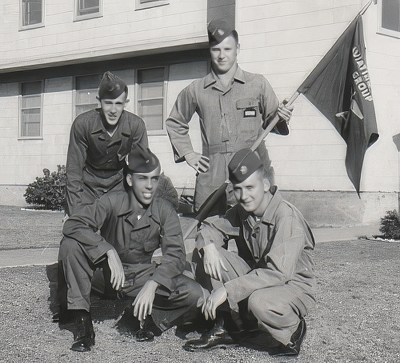
Entering the Air Force at age 19 had a tremendous influence on how I lived my life from that moment forward. I learned about integrity, accountability, reliability, honor, and discipline, plus a whole lot more. To this day, 65 years later, I hang my clothes military style in my closet with the shirts and pants separated and facing the same way. Those military qualities helped me immensely in my second career as a software engineer. I think that what made the USA so great was the military draft. It produced a disciplined and very productive workforce.
The thing I miss the most after retiring from the Air Force was flying. I loved flying, and it is reflected in the 11,590 hours of flying time I accumulated.
Based on your own experiences, what advice would you give to those who have recently joined the Air Force?
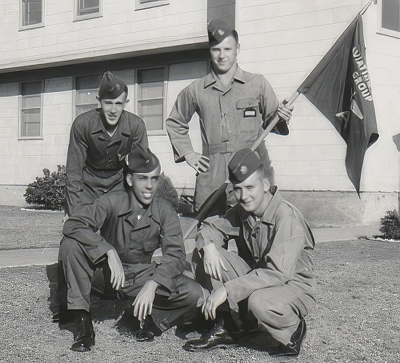
I think developing a good attitude and dedication to duty is essential. Don’t be afraid to volunteer when asked. Do your best at each assignment and be reliable. Later on, when promotions are at stake, these attributes will help you.
In what ways has togetherweserved.com helped you remember your military service and the friends you served with.
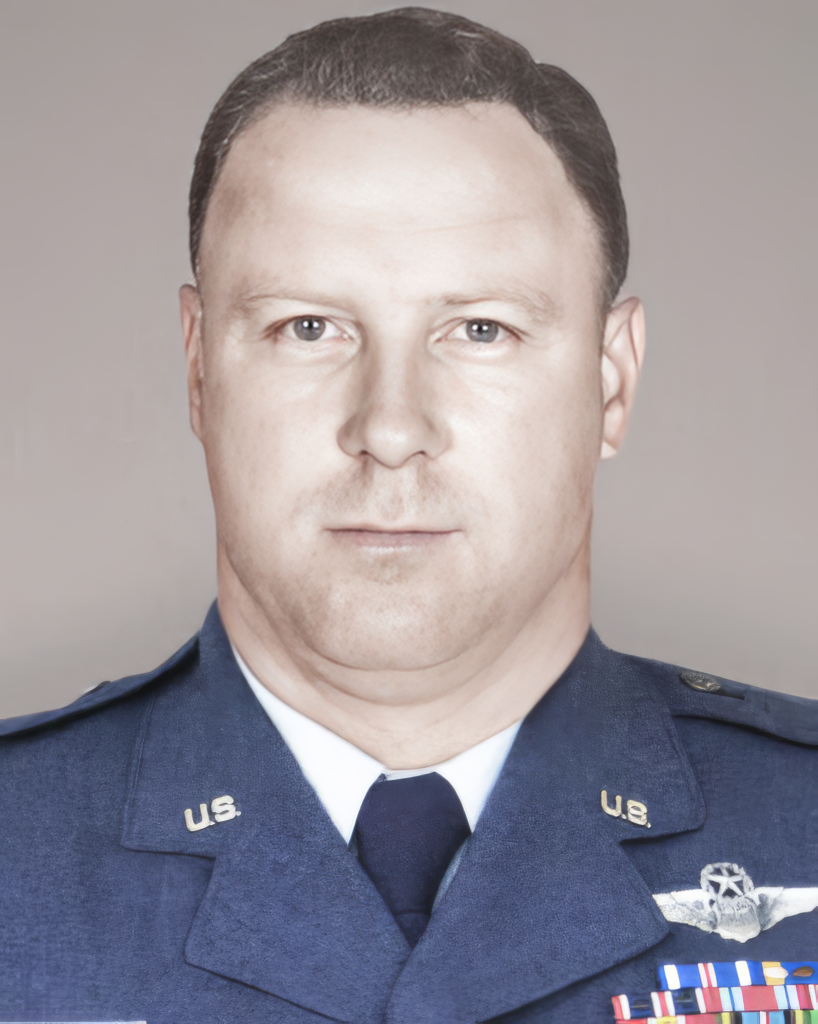
Building my profile on TogetherWeServed.com forced me to dig out all my old military paperwork, medals, awards, and pictures, sort them into chronological order and review them. That process brought back all the memories from each assignment and aided me in doing this project.
PRESERVE YOUR OWN SERVICE MEMORIES!
Boot Camp, Units, Combat Operations
Join Togetherweserved.com to Create a Legacy of Your Service
U.S. Marine Corps, U.S. Navy, U.S. Air Force, U.S. Army, U.S. Coast Guard
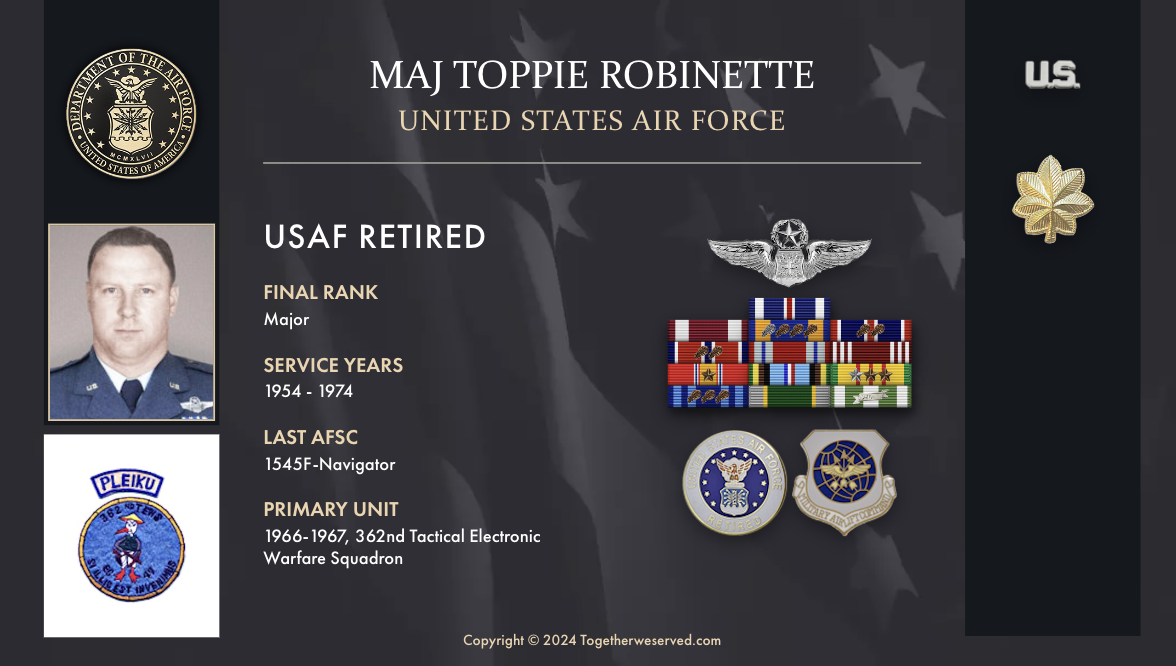
It sounds like you had a great career and a great life Major Robinette. Your parents and family must be awfully proud of you. What’s interesting is that you had modest beginnings, but you got an opportunity, took advantage of it and excelled over and over again. It makes one wonder how many other people could have excelled beyond their dreams had they been given the opportunity. I would say there have been many of those. Can you imagine what your life would have been like if you had gone to work for the Kelly Springfield Tire Co. and never left town? I’m glad that you got that opportunity and demonstrated such high levels of competence. What’s interesting too is that it doesn’t sound like you got a lot of encouragement from school or family to achieve such successes as what you enjoyed. That means that the drive and ambition to achieve came from you only.